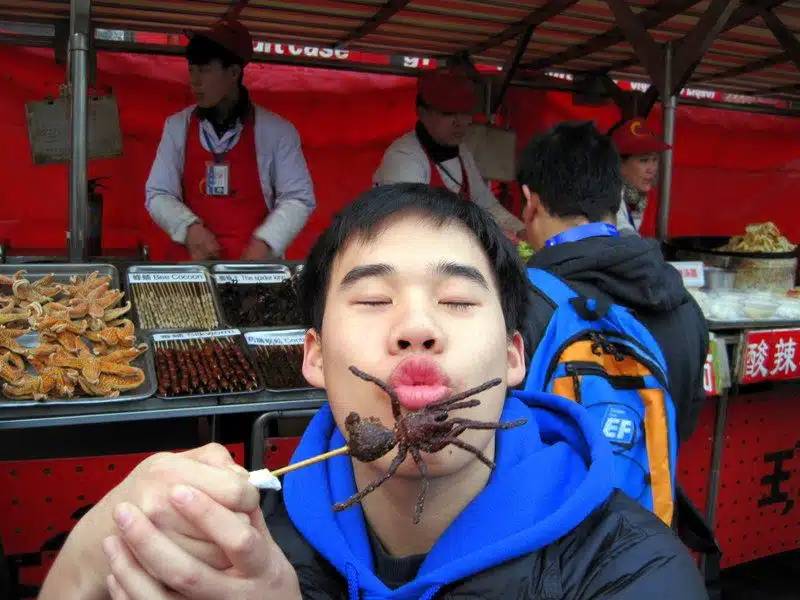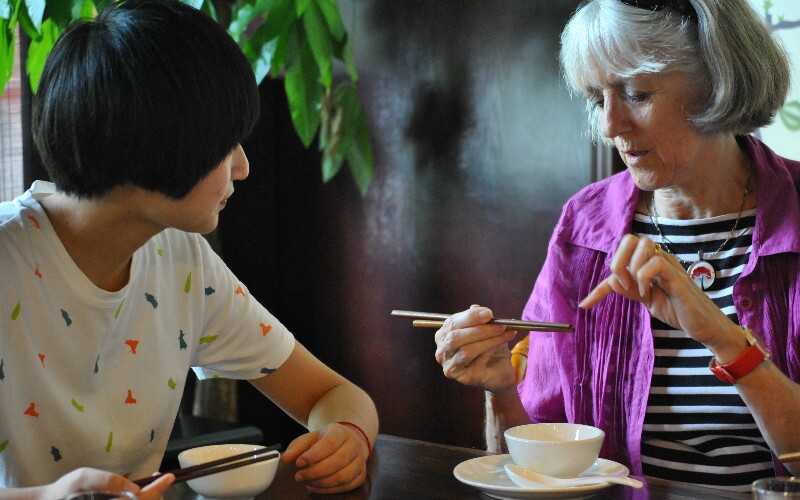20 Top Ways To Explore China Rich Food History
20 Top Ways To Explore China Rich Food History
Blog Article
Top 10 Tips For Shopping In China Street Markets
1. Arrive earlyTip: Markets tend to have bargains in the morning hours when vendors set up.Pros: Buying before the deadline allows you to have a greater selection and allows you to bargain for more.Cons: It's a must to wake up very early. This might not be a good fit for the schedule of everyone.
2. Bring CashThe majority of street sellers prefer to accept cash payments however, mobile payment options like WeChat Pay and Alipay are becoming more popular.Pro: Making cash payments can make transactions more smooth and also gives you negotiating leverage.Contraint: Carrying cash can increase the chance of theft and loss.
3. Learn Basic MandarinTip: Knowing phrases like "Zhege duoshao Qian?" (How much is this?) Knowing phrases such as "Zhege duoshao ba" ("How much is this?") or "Pianyiyidian ba?" (Can you lower the cost?) You can communicate more effectively.Pro: Builds rapport with vendors and shows respect for the local culture.Pro The lack of a vocabulary may lead to miscommunications.
4. Take care to inspect itemsTIP: Always examine all items for defects and inconsistencies.Pro: It ensures that you receive the value you pay for and prevents disappointment later.Con: This can take a long time and can irritate vendors.
5. Shop with ConfidenceDon't be afraid to bargain. It is a common to do so in all market stalls. In the beginning, try to cut the price by 50%-70%.Pro: Bargaining is a great way to reduce expenses.Con: It may be difficult for those who aren't experienced with the process.
6. Beware of counterfeitsBe cautious when you purchase brand name products such as bags, watches and electronic devices.Pro: It can save you the cost of buying cheap counterfeits.Con: Genuine goods can be difficult to find and can be more costly.
7. Observe Local CustomsMake use of locals' shopping habits, negotiations, and interactions with vendors as a guide to determine your own style of operation.Pro: You'll be able to blend in with the community and be able to avoid mistakes.Cons: It could require some time to master all the customs.
8. Keep Valuables SecureTIP: Avoid pickingpockets with anti-theft bags and keep mobile phones and wallets in safe pockets.Reduces the likelihood of theft in areas with significant traffic.Cons: Extra precautions can be a bit restrictive.
9. Purchase food that you can taste (before Buying)To make sure you're receiving the highest quality product, many food vendors provide free sample snacks and dried goods.Pro tip: Make sure that you're satisfied with the taste and freshness of the food you eat.Pro: Some sellers may make you buy after they have provided a trial.
10. Know the Market's FocusYou can find certain products in each market, including souvenirs and antiques at Beijing's Panjiayuan or Shanghai's Yuyuan Market. It is possible to research your needs and match them to the market you're going to.Focusing on the right things and saving time.Cons: It restricts spontaneity to the extent that you have to stick to your research.
Visit street markets to reap the benefitsDiscover items that are not available in traditional shops, such as local foods or crafts made by hand.Street markets have better prices than stores or malls.Cultural Experience: Engaging in conversations with vendors and navigating local markets is one method to get immersed in the culture of the area.Wide Variety Markets can have everything from gifts to food items and clothing.Pros and Cons of Shopping at Street MarketsCounterfeit products: The likelihood of finding copyright products or inferior quality products is very high.Crowds: Markets are extremely busy, especially on weekends and holidays.Pressure from Vendors: Some vendors might employ selling tactics that are aggressive, which makes the experience overwhelming.No Returns: The majority of purchases are considered final. There is no recourse for exchange or refund.If you're ready and follow these tips and you are prepared, you'll be able to take advantage of the best of China's vibrant street markets. Take a look at the top discover Chinese street food for site examples including the ultimate guide to Chinese cuisine, a taste of China best local foods, Chinese cuisine you need to try, the best food destinations in China, discover China regional dishes, explore the best local eats in China, the flavors of Chinese cuisine, a guide to eating like a local in China, explore diverse Chinese dishes, authentic Chinese culinary adventures and more.
Top 10 Tips On Visiting During The Season When You Visit Famous Temples In China
1. Visit in the off season Tip for Autumn/Winter: If you intend to visit some famous temples in the off-season (autumn/winter) which usually falls between November and February, think about visiting these temples. This is the time the time when there are less tourists and the weather is more pleasant.
Pro: Less busy. It is a tranquil and tranquil environment.Cons: The weather may be colder and this could make outdoor temple visits more uncomfortable.2. Be prepared for extreme weather conditionsThe temperature can vary greatly during different seasons. Winters can be brutally cold, however summers can be hot. Dress according to the forecast for the weather.
Pro: Prepared for any weather situation You'll be comfortable during your visit.It can be difficult especially if you're traveling in a small amount.3. Visits in the Spring and Summer months for Vibrant FloraTip: Visiting temples in spring and summer allows you to take in stunning gardens, flowering flowers, and lush landscapes around the temples.
The beautiful scenery adds to the enjoyment of visiting temple grounds.Con: Summers are often very hot and busy, especially around national holidays.4. Think about festivals and other special events.Make sure to visit during traditional festivals like Chinese New Year or Mid-Autumn Festival. These times are filled with rituals, celebrations and the chance to see the temple's vibrant cultural activity.
Pro Temples are usually bustling and filled with traditional events, offering an experience unlike any other.Con: During festivals temples may become very packed and the cost of accommodation could rise.5. Beware of Peak Holiday SeasonsAvoid visiting during peak tourist seasons (e.g. Chinese New Year or Golden Week in October) as temples can be crowded both with international and local tourists.
Pros: Less crowded, more peaceful visits. An experience of spirituality.Con: You'll miss the special festival events in peak times.6. Be sure to check for winter Temple closures.Check ahead of time. Certain temples, particularly in northern and remote regions, may only be open for a specific time or close entirely during winter. Be sure to check ahead.
Cons: You don't spend time, and you will be able to organize your other activities.Con: Certain temples could have reduced hours or be entirely closed during repairs, which can lead to disappointment.7. Early Morning Visits During the summerTIP: If you plan to visit during summer, be sure to arrive early in the early morning to avoid the hot midday heat. Most temples are open in the morning and evening, which means there are less people and there is less heat.
Pro: A cooler and more peaceful experience, without crowds.Cons: It requires an early wake-up which isn't ideal for everyone.8. Prepare for rain during the summer months.In the southern part of China, heavy rains can occur during the summer months. If you are visiting during this time make sure you have an umbrella and rain gear.
Pros: The temple remains stunning even when it's raining.Con: Rain can interfere with outdoor activities and cause temple grounds slippery.9. In the autumn, go to temples in mountainous areasTips: Autumn is an perfect season to go to temples in the mountainous regions (e.g., Mount Wutai or Mount Emei) as the temperature is mild, and the fall foliage creates amazing scenery.
Pro: Cooler temperatures are ideal to hike and explore nature.Con: Temples that are popular in the mountains may be popular during weekends and on holidays.10. Consider the Lunar Calendar for Specific EventsTip: Many temples follow the lunar calendar of China Certain rituals or occasions are tied to specific dates. It is important to check the calendar so that you can be able attend major events, such as the Lantern Festival, Buddha’s Birthday or other temple ceremonies.
Pros: Greater understanding of religious practices and unforgettable cultural experiences.Con: It may require extra time to plan and research on the lunar calendar and events may not align with your travel dates.Benefits of a Seasonal Trip to Chinese TemplesLess crowds on trips during off-season are more peaceful and reflective.Festivals: Cultural events offer an opportunity to learn more about local customs that are both cultural and religious.The beauty of the landscape. The seasons of spring and autumn can bring you stunning landscapes. The lush gardens that surround temples can also be a good option.Tempel exploration is more pleasant in the autumn and winter months.Cons of Going to Chinese Temples during the SeasonUnpredictable Climate: Winters could be cold and summers too hot.Temple Closures - Some temples close during extreme weather, or when they operate with limited hours.Afraid of crowds during festivals: The most popular festivals and holidays can draw huge crowds, making it difficult to fully enjoy the peaceful atmosphere of the temple.Limited Activities Some seasonal events and ceremonies may not be held when you arrive later than the timeframe.Making sure you visit the world-renowned Chinese temples during the right time of year can help you enjoy a meaningful and enjoyable experience. You may be seeking peace and peace or a cultural celebration, understanding the seasonal dynamics can assist you in making the most of your visit. Check out the recommended Chinese food culture guide for site examples including a guide to China food scene, China famous food destinations, savoring the best of Chinese cuisine, delicious Chinese dishes to try, explore the best local eats in China, a guide to eating like a local in China, a tour of China regional cuisine, discover Chinese street food, explore China riCh food history, famous foods in China cities and more.